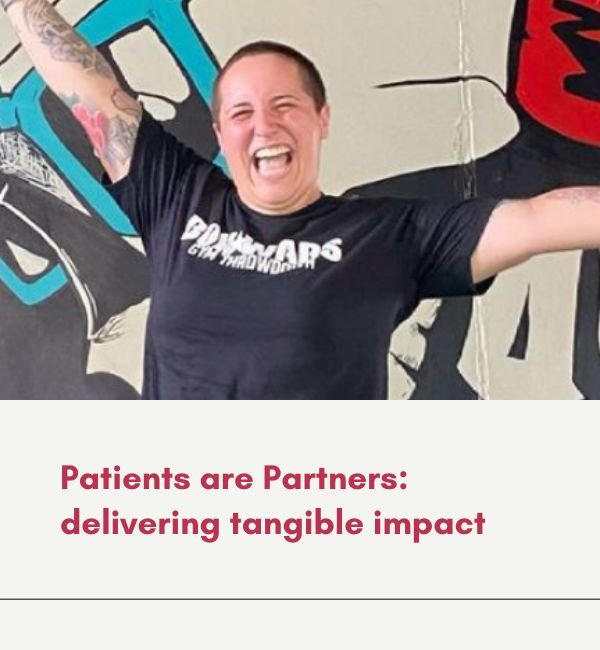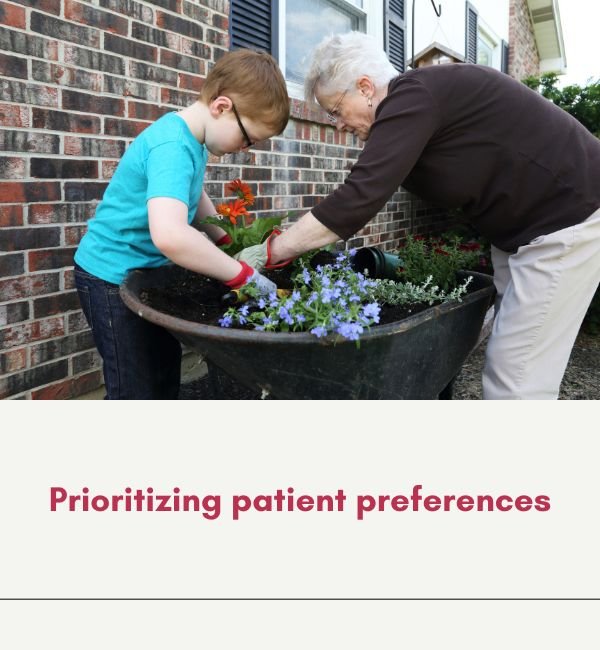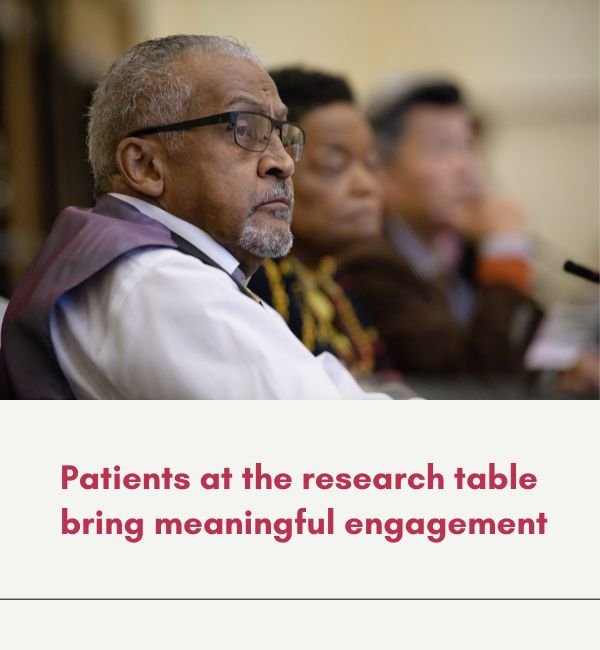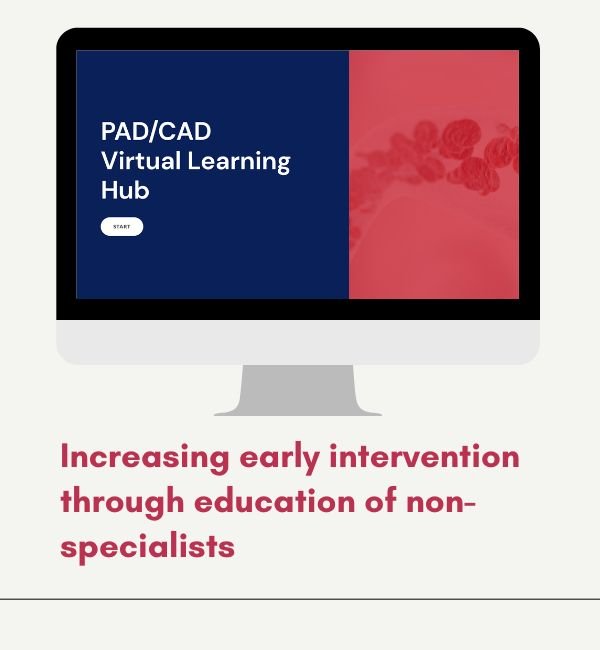
Comprehensive Heart and Limb Multidisciplinary Limb Preservation Networks (CHAMPIONS)
CHAMPIONS is a vascular prevention and wellness initiative that delivers free screenings and education to the public while promoting equitable patient-centered evidence-based care. The vision is to have a future where every individual, irrespective of background or economic status, has access to proactive, community-driven healthcare that prevents vascular disease and promotes long-term wellness.

Casa Colina’s Peer-Pal Support Intervention in Low-Income Patients with Ischemic Diabetic Foot Ulceration
The Peer-Pal Support Intervention, led by Dr. Tze-Woei Tan and Dr. Emily Rosario, introduces a culturally responsive, equity-driven care model. By training individuals with healed diabetic foot ulcers to mentor newly diagnosed patients, the program helps break down systemic and social barriers to care. Early outcomes highlight its potential to empower patients, boost self-care, enhance communication with providers, and reduce reliance on clinical resources—offering a scalable solution for underserved communities.

Galvanizing patient awareness and advocacy through community microgrants
Our Peripheral Artery Disease (PAD) Microgrant Program funds innovative patient partner-led work to increase awareness and screening of PAD. This year we are supporting Kim Campbell, a passionate vascular health advocate who lost her mother to advanced PAD. Kim is working in Atlanta to build a network of patient partners, raise awareness about this devastating condition, and train future patient advocates.

Patients are Partners: delivering tangible impact
We are dedicated to empowering patients and caregivers to become equal partners in care and research because we know that the patient voice is crucial to ensuring real, tangible impact. Our Patients are Partners program creates a network of patients who develop engagement skills through education, mentorship and community resources, to support their participation in vascular health research and care.

Improving outcomes for diabetic patients through research
“My research helps develop better treatment options for the 10 million Americans with diabetic foot ulcers who are at risk for a major lower extremity amputation,” says the 2022 Wylie Scholar, Tammy Nguyen, MD PhD. Tammy, a researcher at the University of Massachusetts, is studying cells from bone marrow of patients with amputated limbs or toes to improve wound healing in diabetic patients.

Prioritizing patient preferences
Our Collaborative Patient-Centered Research grants fund high-risk, collaborative science that prioritizes the patient perspective. In 2021 we awarded a grant to a team from University of Michigan, University of Minnesota, and Stanford to address a mismatch between how patients and clinicians measure symptoms and define treatment goals. The overall purpose of this work is to prioritize patients’ activity goals and inform treatment models.

Patients at the research table bring meaningful engagement
We are leading a 2-year project supported by the Patient-Centered Outcomes Research Institute to address the lack of patient engagement in chronic limb-threatening ischemia (CLTI) research, engaging dozens of patients and caregivers. Data shows that patient engagement in research improves patient outcomes, but patient engagement is rare in CLTI. This project is particularly meaningful given the high mortality and amputation rates associated with this disease.

Increasing early intervention through education of non-specialists
Our Learning Hub for Non-Specialists is a new educational resource on patient-centric care for peripheral artery disease (PAD) and coronary artery disease (CAD). Its engaging information, videos, quizzes, and case studies give non-specialists the tools that are otherwise unavailable to medical professionals in minoritized and rural communities. As most severe symptoms of PAD & CAD arise due to non-treatment, early identification and prevention are critical.

Combating inflammation to reduce vascular disease
University of Michigan’s Katherine Gallagher MD says her 2012 Wylie Scholar Award allowed her to jumpstart her lab and make discoveries regarding how immune cells regulate inflammation, which is thought to lead to vascular disease. She brings a data-driven, personalized medicine approach to patient care. A powerhouse vascular surgeon-scientist, Dr. Gallagher was elected to the National Academy of Medicine in 2022 for her innovative research.

Reducing foot wound and leg amputation through peer support
In 2022 we awarded a Health Equity grant to a collaborative project team from the University of Arizona, USC, and Casa Colina Hospital. This project is addressing the increased risk of diabetic foot wounds and leg amputations among patients with peripheral artery disease from low-income neighborhoods. The team is piloting a patient-centered peer support approach to teach low-income vascular patients, who commonly experience emotional distress, coping strategies and ways to navigate the healthcare system.

Fighting health inequity in Philadelphia through barber shops and more!
Our 2022 Health Equity Grant is funding a collaborative project between Thomas Jefferson University, Temple Health, and the Frazier Family Coalition to address high amputation rates among Black men in North Philadelphia. The team is partnering with barber shops and a local community center to educate and screen men for peripheral artery disease, the leading cause of amputations, as well as train health professionals to provide preventative care.

Interactive education designed with and for patients
The Vascular Health Equity Academy is our new patient-centered learning hub, focused on bringing high-quality, relevant materials to patients and caregivers. Our modules provide education on a variety of subjects important to patience, including diseases, how to engage meaningfully in care and research, and the benefit of lifestyle changes (such as increased walking) to improve vascular health. Education is central to empowerment, and we are thrilled to share this resource with our community.

Raising Awareness of Peripheral Artery Disease for Better Vascular Health
Our Peripheral Artery Disease (PAD) Empowerment Program raises awareness about PAD across the country. Through dynamic efforts such as microgrants to community leaders, presence at health fairs and local community events, and social media groups (including one champion’s 800+ person Facebook group!), we advocate for better vascular health for all.

Convening changemakers to advance vascular health innovation
Each year, through the Vascular Health Impact Network (VHIN), we convene stakeholders across vascular health fields, including patients, physicians, nurses, researchers, industry, and regulators. These VHIN Innovation Summits have helped identify gaps in current research that must be addressed to advance vascular innovation and have resulted in significant patient-centered research. This year’s Summit will focus on how precision medicine can advance vascular health.

Identifying Barriers to Vascular Care and Research Among Diverse Communities
Learning from the experiences and preferences of a diverse set of people informs efforts to make clinical care and research more equitable and patient-centered. In 2021, a team from Duke and UCSF received our Collaborative Patient-Centered Research Grant to gather information regarding barriers to care and research from patients suffering from chronic limb-threatening ischemia.

Identifying Biomarkers to Improve Patient Prognosis
In 2020, we awarded two projects (a UCSF-University of Florida collaboration, and a University of Pittsburgh Medical Center-Vanderbilt collaboration) to identify biological factors (biomarkers) that predict success or failure of vascular repair procedures in patients with peripheral artery disease and abdominal aortic aneurysms. This work may lead to validated tests that predict inflammatory response to vascular healing.
